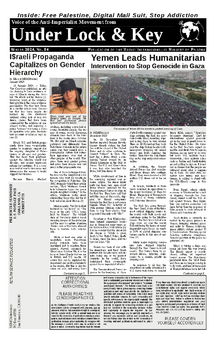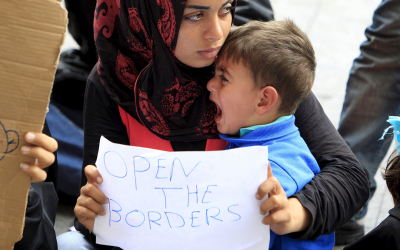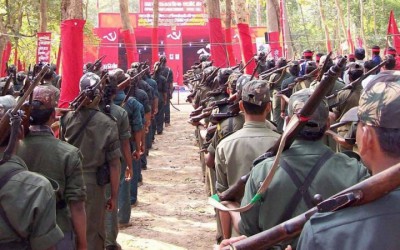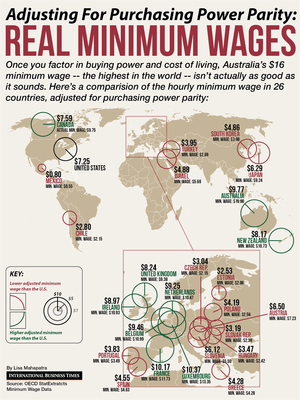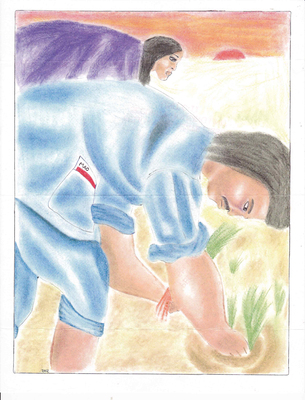
Mass Migration 2015
The imperialists have created a mess of migration, with hundreds of thousands of people traveling from the Middle East and north Africa to the European Union (EU). Earlier this year there was media attention on the increased migration from Myanmar and Bangladesh to the richer countries of South Asia such as Indonesia, Malaysia and Thailand. This is in the context of an unprecedented increase in mass displacement worldwide.
"By end-2014, 59.5 million individuals were forcibly displaced worldwide as a result of persecution, conflict, generalized violence, or human rights violations. This is 8.3 million persons more than the year before (51.2 million) and the highest annual increase in a single year."(1)
The conditions that led about 7% of the world's entire population to leave their homes vary widely, and similarly the situations they face when they do leave their homes also vary. Some have absolutely nothing to their name but the rags on their body, while others are carrying smart phones, have high formal education, and are being wired money along their journey for train tickets and smugglers' fees. Some just need to leave where they are, others want to meet up with family who have already immigrated to other countries, and many are doing both. This article does not attempt to provide a comprehensive history of the mass migrations, but it does try to outline some basic principles to keep in mind as the news unfolds.
Open All Borders!
The oppressor countries have concentrated wealth due to the oppression and exploitation they inflict on other nations. In these countries, there is a lot of hubub about whether people are "truly" refugees, and thus worthy of help, or "just" migrants looking for better economic opportunity, and thus not worthy of assistance. They say those deemed to be economic migrants should be sent back to their "safe" countries to build their lives there — a pull-yourself-up-by-your-bootstraps of international proportions.
No matter why people are leaving their present location, our position is the same: open all borders! The most progressive economic position under capitalism would be to enable free travel and work across all borders. Wealth would be more equalized and the imperialists would have a material interest in ending harmful policies and practices in other countries, for fear that those populations would leave their homes to venture to the countries where the wealth is being concentrated.
We know opening all borders is not a realisitic solution in our present conditions, so at the very minimum we call on the wealthy countries to allow those who have already fled to make new lives wherever they (want to) land. We then call on these wealthy countries to take a stand against the primary cause for why people flee: U.$. militarism and imperialism.
On the surface it appears Germany has been somewhat favorable to this position. They have been the most welcoming country of the EU (although most recently they are trying to curb the migration rather than welcome it with open arms). We support any EU country's openness to migrants. But it's significant that Germany has an aging population and has been trying to figure out how to maintain its economy with a deficit of working-age people. How fortunate then that so many of the refugees come with professional degrees, skills, and even some savings. The economic situation in Germany makes it possible for the country to play hero. The economic substructure defines the ideological superstructure. If not for the economic problems in Germany, humanitarian efforts would be marginalized.
National Chauvinism is Not Internationalism
In spring 2015, media attention was on Indonesia, Thailand, Malaysia, and Australia for refusing to take in Rohingyas and Bangladeshis who were abandoned by their smugglers at sea for weeks and months.(2) The primary position of these countries was "it's not our problem."
In the EU, Hungary has been a main thoroughfare for migrants this summer. In response they are erecting an emergency wall on the borders, and Hungary's government's stance is to discourage migration as much as possible. Denmark, just north of Germany, has been widely advertising that it has greatly reduced assistance for migrants, and that people should not go there. And these are certainly not the only examples of national chauvinism in Europe.
Those who don't grasp the differences between revolutionary nationalism and national chauvinism will use these examples as evidence that all nationalism is bad. One of the more progressive trends that makes this mistake is the anarchists. Nationalism of oppressor nations tends toward fascism, but nationalism of oppressed nations tends towards revolutionary internationalism. Being that the vast majority of anarchist movements are located in the First World, it makes sense that they should oppose the nationalism that they see around them. But a materialist historical analysis shows that nationalism of the oppressed has done the most to advance peoples out of oppression, imperialism's stranglehold, and toward a society where nations and states are no longer necessary. Maoists also want a world without nations and states, but a rejection of the progressive aspects of nationalism won't get us there.
European Union vs. United $tates
Some officials in the EU have criticized United $tates policy and military intervention in the Middle East as the reason for this most recent mass migration. To the EU, most people coming from the Middle East are from Syria, Afghanistan, and Iraq. Not surprisingly, the United $tates is also presently engaged in military campaigns in and on these countries.
But the EU only cares what the United $tates does to the degree that it affects the EU. It's good when anyone criticizes the United $tates's meddling in the Middle East. But until words turn into actions (and until EU countries stop their own military campaigns in the region), it's just a lot of hot air. We want to see the EU not only open its borders for all the migrants, but also to recognize that it has interests which differ from those of the United $tates. A united EU should stop all material and verbal support for occupation and war in the Middle East, which would do more to help with their present migrant crisis than building walls and placing newspaper ads.
Rise of Fascism
The recent mass migration has been exposing reactionary nationalist sentiments, and in turn adding fuel to the recent rise of fascism in Europe. More far-right parties are being elected at various levels of government, and there are more demonstrations and attacks on migrants — the people, and the infrastructure to support them. Most notably, fascism has been rising in the last few years in Greece, Germany, Hungary and Sweden.(3)
Communism is the natural antithesis to fascism. Those who see more material interests in maintaining their present economic position will tend toward fascism, whereas those who would benefit more from an equalization of wealth internationally will tend more toward communism. It's the job of the communists to help prevent the rise of fascism in Europe.
